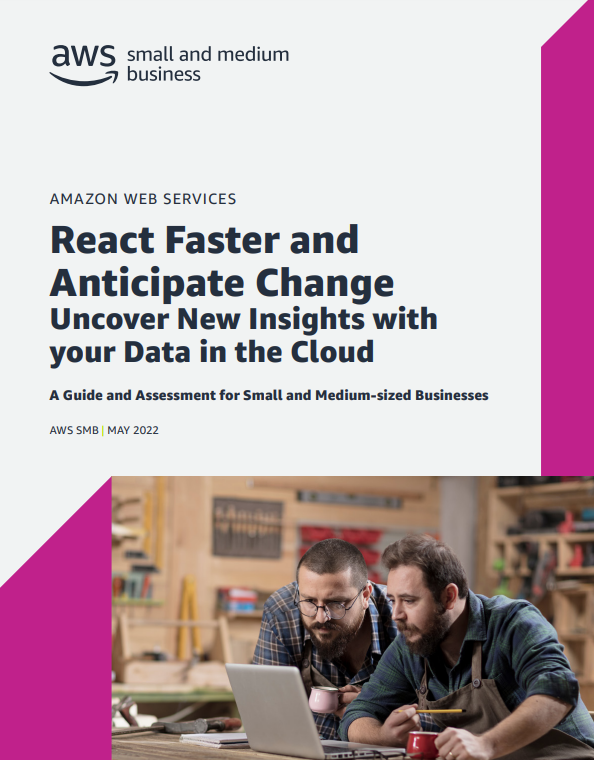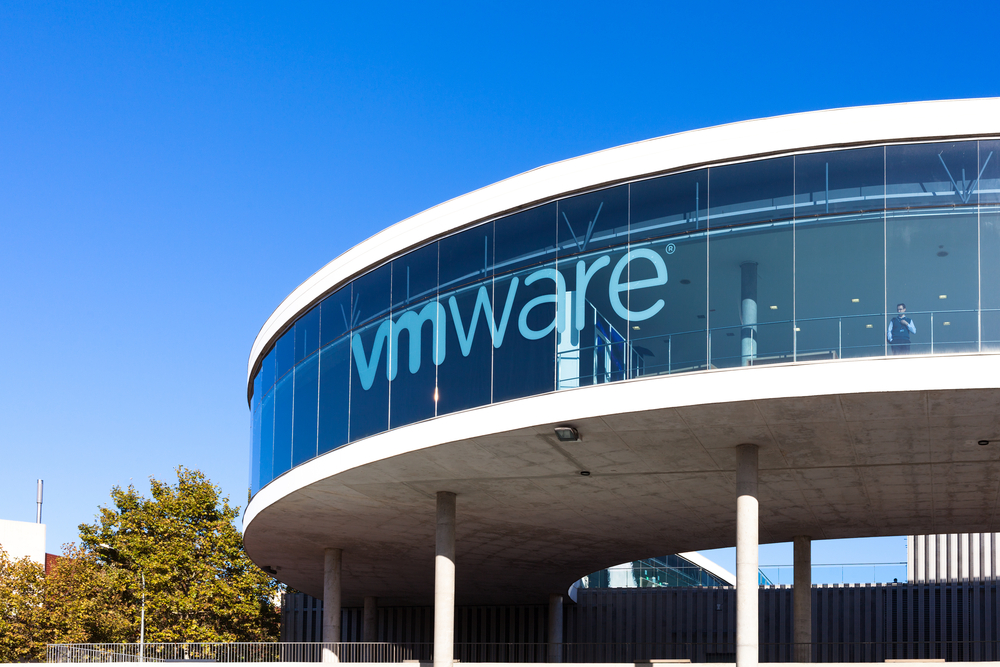AWS invests $6 billion in Malaysia cloud expansion as SEA competition heats up
While AWS continues expanding its footprint in Southeast Asia, Chinese competitors are edging into this expanding market


AWS has revealed plans to launch a new infrastructure region in Malaysia and accelerate the delivery of services in the region.
In a statement on Wednesday, the cloud computing giant said it plans to invest $6 billion (£5 billion) in Malaysian operations by 2037 as the firm looks to build on its established footprint in the country.
A range of Malaysian organisations, including Petronas and Bank of Islam Malaysia, currently use AWS cloud, as well as a host of public services and academic institutions.
AWS said the establishment of the new region will enable customers with data residency preferences to “store data securely in Malaysia, enable customers to achieve even lower latency, and serve demand for cloud services across Southeast Asia”.
Prasad Kalyanaraman, vice president of infrastructure services at AWS, said the launch of the new AWS region reflects the company’s “deep and long-term commitment to customers and organisations in Malaysia” as well as its current commitment to accelerating cloud services across Southeast Asia.
“We look forward to helping Malaysian institutions, startups, and companies deliver cloud-powered applications to fuel economic development across the country and to spur job creation, skills training, and educational opportunities in the communities surrounding our data centres.”
While AWS already has a firm foothold in Malaysia, the launch of the new region status coincides with the rapid expansion of global operations. The firm currently has a footprint in 31 geographic locations globally, but plans to launch five more AWS regions in Canada, Israel, and New Zealand.
Get the ITPro daily newsletter
Sign up today and you will receive a free copy of our Future Focus 2025 report - the leading guidance on AI, cybersecurity and other IT challenges as per 700+ senior executives
In October last year, the company further cemented its commitment to Southeast Asia amid plans to establish the new Asia Pacific (Bangkok) region and invest $5 billion over the next 15 years.
Cloud competition heating up in Southeast Asia
The move from AWS comes amid a period of rising competition in the Southeast Asian cloud space.
In August last year, Google Cloud announced the launch of a new region in Thailand in addition to a commitment to drive expansion in Malaysia. Meanwhile, Microsoft’s cloud computing arm commands a strong foothold in nearby Singapore.
However, while the traditional hyperscalers are widening their footprint in the region, they are beginning to face increased pressure from Chinese-based cloud providers seeking to capitalise on this rapidly expanding marketplace.
Tencent, Alibaba Cloud, and Huawei have all embarked on an aggressive campaign of expansion across Southeast Asia. In September, Alibaba Cloud, China’s largest cloud provider, announced plans to invest $1 billion (£835 million) to support expansion in the region.
The cloud giant also established its international headquarters in Singapore in January of this year.
Similarly, Huawei confirmed in November that it planned to invest $300 million (£250 million) in expanding cloud operations in Indonesia in a move that builds on an increasing foothold in the region that already includes services in Thailand and Malaysia.
In February, Princeton Digital Group, an APAC data centre company, also announced it will invest around $1 billion (£881 million) into a data centre campus in Indonesia.
This expansion shows no sign of stopping as Chinese cloud providers increasingly view Southeast Asia as a key growth market.
RELATED RESOURCE

Uncover new insights with your data in the cloud
React faster and anticipate change - A guide and assessment for SMBs
A recent analysis of the number of ‘availability zones’ from the Wall Street Journal - which refers to clusters of data centres held by respective cloud providers – shows that Chinese companies are outpacing hyperscalers and now boast a far broader footprint in the region.
Combined, Huawei, Alibaba, And Tencent command more availability zones in Southeast Asia than their American counterparts.
Tiny Haynes, principal analyst for edge computing infrastructure and services at S&P Global, told IT Pro that this heightened competition will continue as western hyperscalers increasingly butt heads with Chinese competitors.
“AWS has had a presence in the region for some time, with Singapore and Tokyo being established over a decade ago,” he said. “The further investment is a symptom of the capital moving from mainline China to cheaper, less politically controversial countries. This will mean that the region will become the key battleground for all the hyperscalers.”
A key differentiator in this emerging battleground is pricing. Organisations in Southeast Asia told the WSJ that Chinese cloud companies typically offer prices anywhere between 20% to 40% lower than American providers to undercut western competitors and appeal to a broader pool of prospective clients.
Haynes noted that while cost remains a key driver for organisations, the technical capabilities of Chinese firms will also be a major attraction for businesses in Southeast Asia moving forward.
“Cost is always a driver for organisations, especially egress fees that can be cripplingly expensive to organisations that don't understand the different pricing models,” he said. “I also expect there to be more attraction to Chinese organisations that are moving further into this region due to the technical skills they will already have with the Chinese hyperscalers.”

Ross Kelly is ITPro's News & Analysis Editor, responsible for leading the brand's news output and in-depth reporting on the latest stories from across the business technology landscape. Ross was previously a Staff Writer, during which time he developed a keen interest in cyber security, business leadership, and emerging technologies.
He graduated from Edinburgh Napier University in 2016 with a BA (Hons) in Journalism, and joined ITPro in 2022 after four years working in technology conference research.
For news pitches, you can contact Ross at ross.kelly@futurenet.com, or on Twitter and LinkedIn.
-
 Third time lucky? Microsoft finally begins roll-out of controversial Recall feature
Third time lucky? Microsoft finally begins roll-out of controversial Recall featureNews The Windows Recall feature has been plagued by setbacks and backlash from security professionals
By Emma Woollacott Published
-
 The UK government wants quantum technology out of the lab and in the hands of enterprises
The UK government wants quantum technology out of the lab and in the hands of enterprisesNews The UK government has unveiled plans to invest £121 million in quantum computing projects in an effort to drive real-world applications and adoption rates.
By Emma Woollacott Published
-
 AWS layoffs: Why Amazon is cutting staff from its most profitable division
AWS layoffs: Why Amazon is cutting staff from its most profitable divisionNews AWS layoffs follow a period of slowing growth and decreasing market share for the cloud division
By Ross Kelly Published
-
 Hyperscaler earnings 'highlight new era of maturity' in global cloud market
Hyperscaler earnings 'highlight new era of maturity' in global cloud marketNews Sluggish earnings for Azure, Google Cloud, and AWS could point to a more moderate cloud market in the year ahead
By Ross Kelly Published
-
 AWS splashes $35 billion to expand data centres in Virginia
AWS splashes $35 billion to expand data centres in VirginiaNews The massive figure is close to the total sum AWS has previously invested in the state since 2006
By Zach Marzouk Published
-
 AWS launches Australia's first local zone for low-latency workloads and data residency
AWS launches Australia's first local zone for low-latency workloads and data residencyNews The company is aiming to help customers who need infrastructure closer to their data sources or end-users
By Zach Marzouk Published
-
 AWS follows Google in opening a cloud region in Thailand
AWS follows Google in opening a cloud region in ThailandNews The region is one of 24 other global regions announced by the company
By Zach Marzouk Published
-
 NetApp teams up with VMware to help businesses migrate enterprise workloads
NetApp teams up with VMware to help businesses migrate enterprise workloadsNews Amazon FSx for NetApp ONTAP is the first native AWS cloud storage to be certified as a supplemental datastore for VMware cloud on AWS
By Daniel Todd Published
-
 AWS announces new region in United Arab Emirates
AWS announces new region in United Arab EmiratesNews The country is already home to AWS’ Middle East (Bahrain) region, launched in 2019
By Praharsha Anand Published
-
 Procore grips AWS’ IoT TwinMaker for streamlined construction operations
Procore grips AWS’ IoT TwinMaker for streamlined construction operationsNews The collaboration will foster the introduction of digital twins to the construction industry
By Praharsha Anand Published